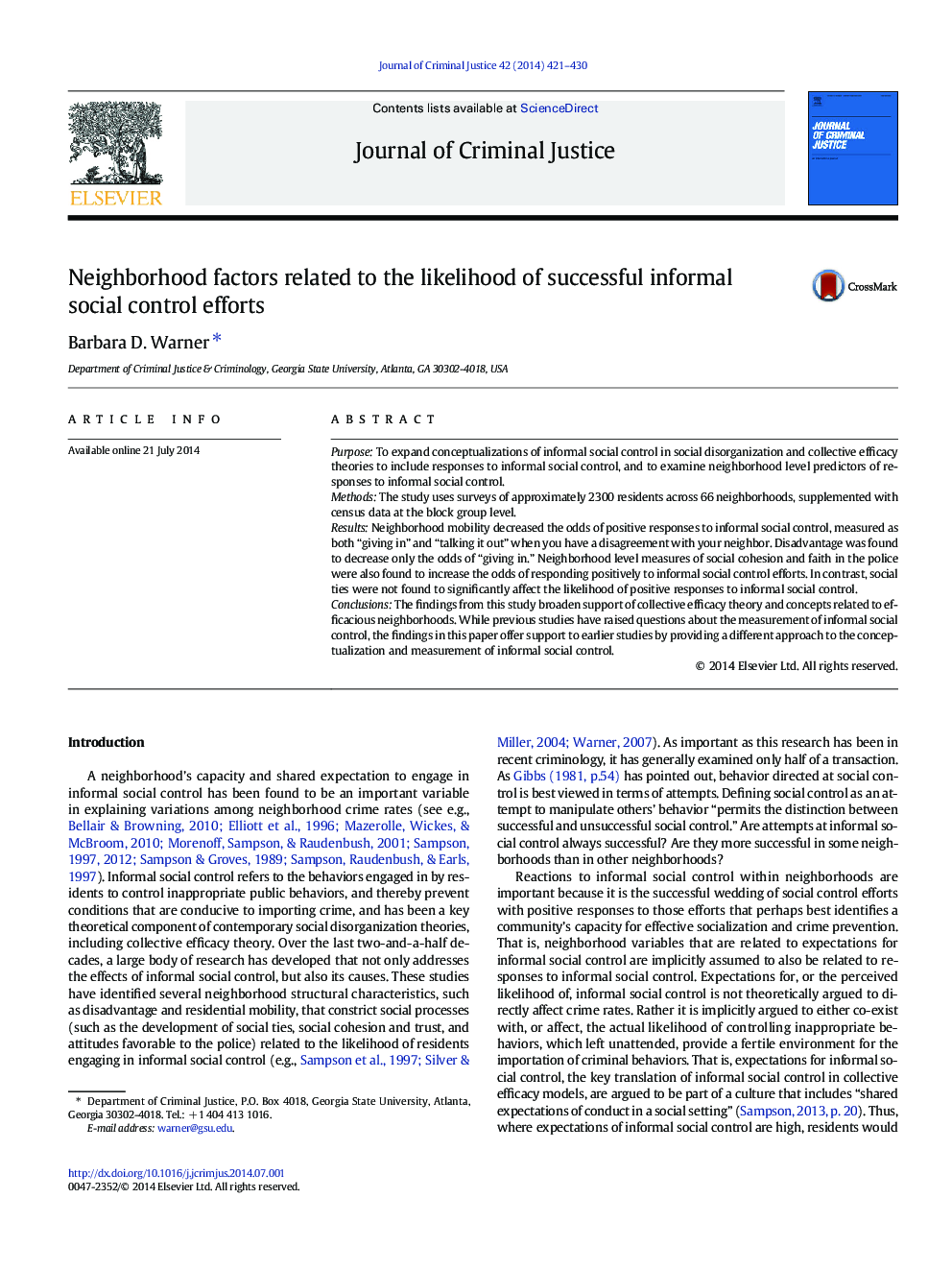| Article ID | Journal | Published Year | Pages | File Type |
|---|---|---|---|---|
| 882667 | Journal of Criminal Justice | 2014 | 10 Pages |
•Responses to social control are examined as a key aspect of collective efficacy.•Neighborhood mobility decreases positive responses to informal social control.•Disadvantage decreases “giving in” but not “talking it out.”•Social cohesion and trust increase successful responses to informal social control.•Neighborhood faith in police increases positive responses to social control.
PurposeTo expand conceptualizations of informal social control in social disorganization and collective efficacy theories to include responses to informal social control, and to examine neighborhood level predictors of responses to informal social control.MethodsThe study uses surveys of approximately 2300 residents across 66 neighborhoods, supplemented with census data at the block group level.ResultsNeighborhood mobility decreased the odds of positive responses to informal social control, measured as both “giving in” and “talking it out” when you have a disagreement with your neighbor. Disadvantage was found to decrease only the odds of “giving in.” Neighborhood level measures of social cohesion and faith in the police were also found to increase the odds of responding positively to informal social control efforts. In contrast, social ties were not found to significantly affect the likelihood of positive responses to informal social control.ConclusionsThe findings from this study broaden support of collective efficacy theory and concepts related to efficacious neighborhoods. While previous studies have raised questions about the measurement of informal social control, the findings in this paper offer support to earlier studies by providing a different approach to the conceptualization and measurement of informal social control.
